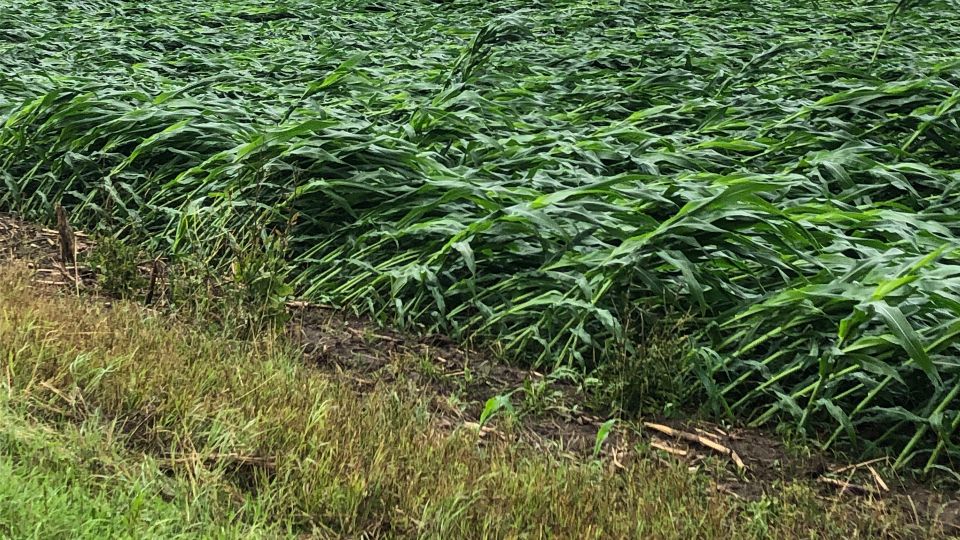“It was big, dark clouds coming in, rolling in. The wind wasn't super strong, but it was enough blowing the rain,” Mannsville’s Doubledale Farm Manager Stephen Gillette said of last Thursday’s storm.
It was that storm that put a major scare in numerous farms across southern Jefferson County.
What You Need To Know
- A major storm last week brought heavy rain and heavy winds to Southern Jefferson County
- Some farms saw hundreds of acres of corn crops had been flattened
- However, the stalks did not break and while still goosenecked, the stalks seem to be headed back up towards the sun
“[It’s] very depressing because you just work through trying to get the crops planning. You know, you bust your butt to go get it planted and then just to watch it go within seconds, it was, you know, gone,” Gillette said of the aftermath.
They say corn should be knee high by the 4th of July. But as Gillette went out to survey his farm's damage, he saw acre after acre, nearly 700 in all, with its cornstalks flattened.
“You see, in a small scale, the corn rowing along the hedgerow - where the tree line is. You'll see when you get some good wind and rain and it'll knock that corn down just in a small spot. Spotty stuff, but not wide open field. You know, there it all goes,” Gillette said of seeing smaller instances like this in the past, but nothing covering hundreds of acres.
The corn at Doubledale is what's known as grain corn. It’s used for cow feed. It helps cows produce the very best milk. And with 700 acres of land valued at about $1,000 an acre because of that corn. Well, as you can imagine, it's enough for the farms, already struggling, to fill that land with panic.
“It's very frustrating because you want a good year because this is where your money is made to make the milk. You know that cow wants that corn,” Gillette said.
However, less than a week later, the wind and rain hit, though it turned out not to be as damaging as it could have been,
“If it would have broken at the bottom, it would have killed our plant and then we would have had nothing. So luckily, it just kind of laid over and state of state attachment and we didn't snap off on us,” Gillette said.
And because of that, there is significant hope that everything will be okay.
“It's like everybody feels a little better now,” Gillette said with a smile on his face.
As Gillette inspected the corn, he saw the stocks popping back up, in that gooseneck state, but almost as if they knew what they needed to do to survive.
“The plant is pretty spectacular. A little plant that could take a beating like that and want to grow and come back up and realize it before you lose it,” he said of corn and its desire to point towards the sun.
And while he's taking nothing for granted.
“It feels good. But you still like a farmer. You're still got your fingers crossed until harvest time. And, you know, you sit back and relax when the snow starts flying and it's put away in your bunk,” Gillette said.
Gillette is very hopeful to get his normal crop amount when he harvests this September.
Experts from Cornell Cooperative Extension are expected to be in Southern Jefferson County Wednesday to inspect the crops and brainstorm ideas for any farms that may not see a full recovery.







)

